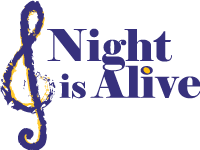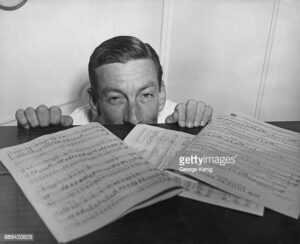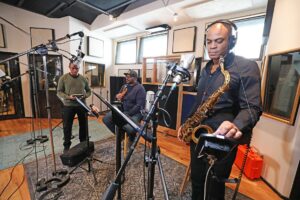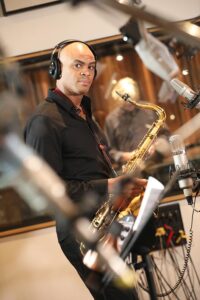
Kenny Burrell’s name has been in the headlines lately, and it’s not because of his music. Back in May, the 87-year-old jazz legend was at the center of a GoFundMe campaign which asked for contributions to help offset a number of recent misfortunes that have put him at the brink of homelessness. Despite the whirlwind of rumors swirling around the origins of the GoFundMe page, many have come to Burrell’s aid and the contributions have well surpassed the goal amount. That alone just goes to show how Burrell and his music have touched so many over the years.
Kenny Burrell’s name has been in the headlines lately, and it’s not because of this famous jazz musician’s music. Back in May, the 87-year-old jazz legend was at the center of a GoFundMe campaign which asked for contributions to help offset a number of recent misfortunes that have put him at the brink of homelessness. Despite the whirlwind of rumors swirling around the origins of the GoFundMe page, many have come to the jazz player’s aid and the contributions have well surpassed the goal amount. That alone just goes to show how Burrell and his music have touched so many over the years.
Kenny Burrell was born July 31, 1931 in Detroit, Michigan. Both of his parents played instruments, and by age 12, Burrell was playing the guitar. Artists like Charlie Christian, Django Reinhardt, Oscar Moore, T-Bone Walker and Muddy Waters inspired him.
During his early years, he studied composition and theory with Louis Cabara and classical guitar with Joe Fava.
Burrell attended Wayne State University. While he was in college, he made his recording debut as a member of Dizzy Gillespie’s sextet in 1951. Not long after, he recorded “Rose of Tangier”/”Ground Round” under his own name for Fortune Records. While in college, Burrell founded the New World Music Society collective with fellow Detroit musicians Pepper Adams, Donald Byrd, Elvin Jones, and Yusef Lateef. Detroit’s vibrant jazz scene also gave Burrell a number of opportunities to play gigs around town and with his friends and bandmates on a regular basis.
After college, Burrell toured with The Oscar Peterson Trio, moved to New York City, played with Broadway pit bands and worked with the likes of Nat King Cole, Billie Holiday, Lena Horne, Stan Getz, Tony Bennett, James Brown, Benny Goodman, Coleman Hawkins and Jimmy Smith.
Burrell recorded debut as a leader came in 1956 with his Blue Note session “Introducing Kenny Burrell”, which was his second recording for the label, but his first recording to be released. After that, the musician appeared on many albums, including 1957’s The Cats featuring John Coltrane, 1963’s Midnight Blue featuring saxophonist Stanley Turrentine and 1965’s Guitar Forms with arrangements by Gil Evans. He’s been featured on more than 200 jazz recordings total.
Burrell’s compositions have been recorded by many notable artists as well. His “Dear Ella,” performed by Dee Dee Bridgewater, won him a Grammy Award in 1998.
Burrell has been an educator since 1971. He started teaching seminars about Duke Ellington, and by 1978, he had developed the first regular college course ever taught in the United States about Ellington. He became the Director of Jazz Studies Programs at UCLA in 1997. He was named Jazz Educator of the Year in 2004 by DownBeat and was named a National Endowment for the Arts Jazz Master in 2005.
Despite recent hardships, this famous guitarist’s legacy still shines bright and it’s evident that Burrell has the love and support of the jazz community. We here at Night is Alive appreciate his artistry and wish him nothing but the best.
Kenny Burrell was born July 31, 1931, in Detroit, Michigan. Both of his parents played instruments, and by age 12, Burrell was playing the guitar. He was inspired by artists like Charlie Christian, Django Reinhardt, Oscar Moore, T-Bone Walker, and Muddy Waters.
During his early years, he studied composition and theory with Louis Cabara and classical guitar with Joe Fava.
Burrell attended Wayne State University. While he was in college, he made his recording debut as a member of Dizzy Gillespie’s sextet in 1951. Not long after, he recorded “Rose of Tangier”/”Ground Round” under his own name for Fortune Records. While in college, Burrell founded the New World Music Society collective with fellow Detroit musicians Pepper Adams, Donald Byrd, Elvin Jones, and Yusef Lateef. Detroit’s vibrant jazz scene also gave Burrell a number of opportunities to play gigs around town and with his friends and bandmates on a regular basis.
After college, Burrell toured with The Oscar Peterson Trio, moved to New York City, played with Broadway pit bands and worked with the likes of Nat King Cole, Billie Holiday, Lena Horne, Stan Getz, Tony Bennett, James Brown, Benny Goodman, Coleman Hawkins and Jimmy Smith.
Burrell recorded debut as a leader came in 1956 with his Blue Note session “Introducing Kenny Burrell”, which was his second recording for the label, but his first recording to be released. After that, he appeared on many albums, including 1957’s The Cats featuring John Coltrane, 1963’s Midnight Blue featuring saxophonist Stanley Turrentine and 1965’s Guitar Forms with arrangements by Gil Evans. He’s been featured on more than 200 jazz recordings total.
Burrell’s compositions have been recorded by many notable artists as well. His “Dear Ella,” performed by Dee Dee Bridgewater, won him a Grammy Award in 1998.
Burrell has been an educator since 1971. He started teaching seminars about Duke Ellington, and by 1978, he had developed the first regular college course ever taught in the United States about Ellington. He became the Director of Jazz Studies Programs at UCLA in 1997. He was named Jazz Educator of the Year in 2004 by DownBeat and was named a National Endowment for the Arts Jazz Master in 2005.
Despite recent hardships, Burrell has the love and support of the jazz community. We here at Night is Alive appreciate his artistry and wish him nothing but the best.






